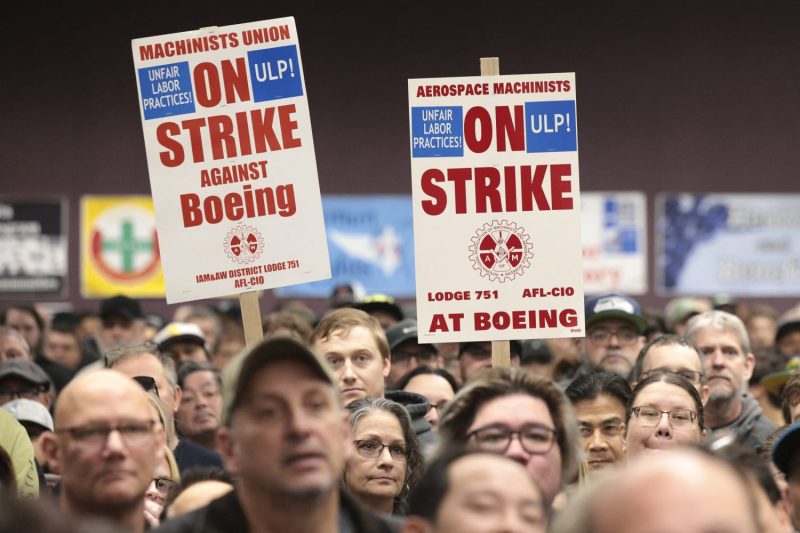In a recent turn of events in the aviation industry, Boeing machinists have made a resounding decision by rejecting a new labor contract, thereby extending an ongoing strike. The rejection of the proposed agreement, which aimed to end the strike and get workers back on the job, signals a significant stand by the machinists union. This development not only intensifies the labor dispute but also underscores the importance of fair labor practices and workers’ rights in today’s corporate landscape.
The rejection of the new labor contract is a clear indication of the deep-rooted dissatisfaction and concerns of the Boeing machinists regarding their working conditions, wages, and benefits. The machinists, who are an integral part of the aerospace giant’s workforce, have voiced their discontent with the terms of the proposed agreement, which they believe did not adequately address their needs and demands. This move highlights the importance of equitable and transparent negotiations between employers and employees to ensure a mutually beneficial outcome.
The rejection of the labor contract not only impacts the Boeing machinists but also has broader implications for the company and the aviation industry as a whole. The extended strike could disrupt production schedules, delay deliveries, and potentially result in financial losses for Boeing. Additionally, the ongoing labor dispute casts a shadow over the company’s reputation and raises concerns about its labor practices and employee relations. It underscores the need for companies to prioritize good-faith negotiations, transparency, and respect for workers’ rights to foster a harmonious work environment.
The rejection of the new labor contract by the Boeing machinists also serves as a reminder of the power of collective bargaining and the importance of solidarity among workers in advocating for their rights. By standing united and rejecting an agreement that they deemed inadequate, the machinists have demonstrated their commitment to fighting for fair treatment, competitive wages, and improved working conditions. This move reinforces the significance of unions in safeguarding the rights and interests of workers and ensuring a balanced and equitable relationship between labor and management.
As the strike at Boeing continues, it is imperative for both parties to reengage in negotiations with a renewed commitment to reaching a mutually acceptable agreement. The rejection of the labor contract presents an opportunity for dialogue, compromise, and resolution that can address the concerns and grievances of the machinists while also meeting the operational requirements of the company. By fostering open communication, trust, and mutual respect, Boeing and the machinists union can work towards a sustainable and productive resolution that benefits all parties involved.
In conclusion, the rejection of the new labor contract by the Boeing machinists underscores the complexities and challenges inherent in labor relations and negotiations in the modern workforce. This development shines a spotlight on the importance of upholding fair labor practices, respecting workers’ rights, and fostering constructive dialogue between employers and employees. As the strike persists, it is essential for both sides to prioritize collaboration, understanding, and compromise to reach a resolution that is fair, equitable, and sustainable in the long run. By addressing the concerns and demands of the workers while also considering the operational needs of the company, Boeing and the machinists can pave the way for a more inclusive, respectful, and productive work environment.

